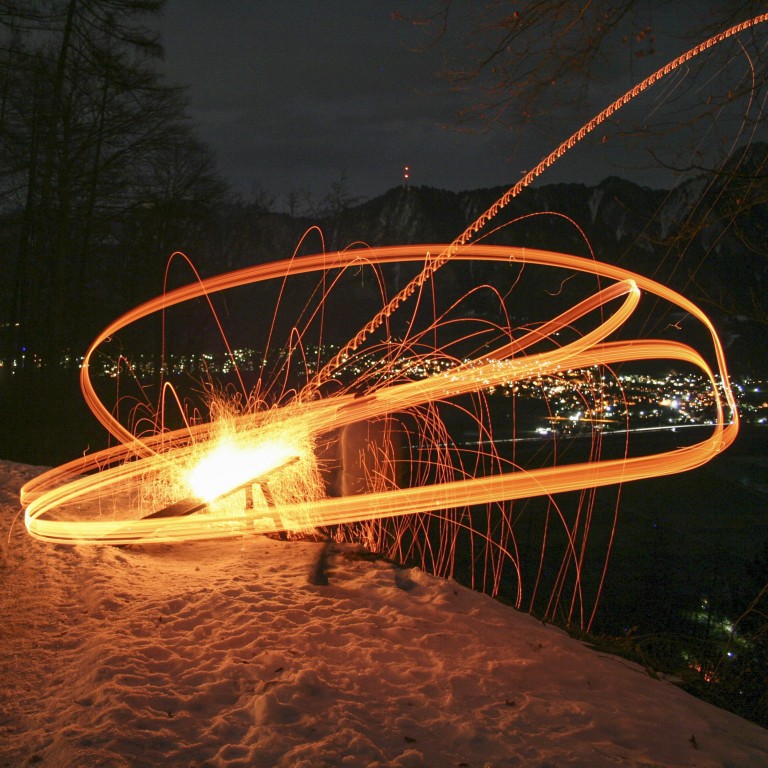
Climate change halts Swiss winter festival in which single males fling flaming discs at their village in a declaration of love
- ‘Disc hitting’ is a popular annual event in Untervaz but climate change has seen the 2023 event cancelled, after a reduced celebration in 2022
- The curious festival is not marketed for tourism purposes, but represents a genuine coming together of the community for celebration – and a few knowing looks
The small mountain community of Untervaz, in the southeast Swiss canton of Graubünden, is in a state of gloom.
This year, the traditional annual winter-banishing festival, known in the local dialect as Schibaschlaha, or “disc hitting” – which was once widely enjoyed in Switzerland but is now preserved mainly in this village of around 2,500 people – was cancelled.
There was some grumbling, Untervaz mayor René Vogel says, but most villagers recognised that no other decision could be taken.
The landscape was neither of an undulating soft whiteness nor seriously soggy as it should have been, and an on-site inspection by the fire brigade confirmed that the risk of forest fires was just too great.
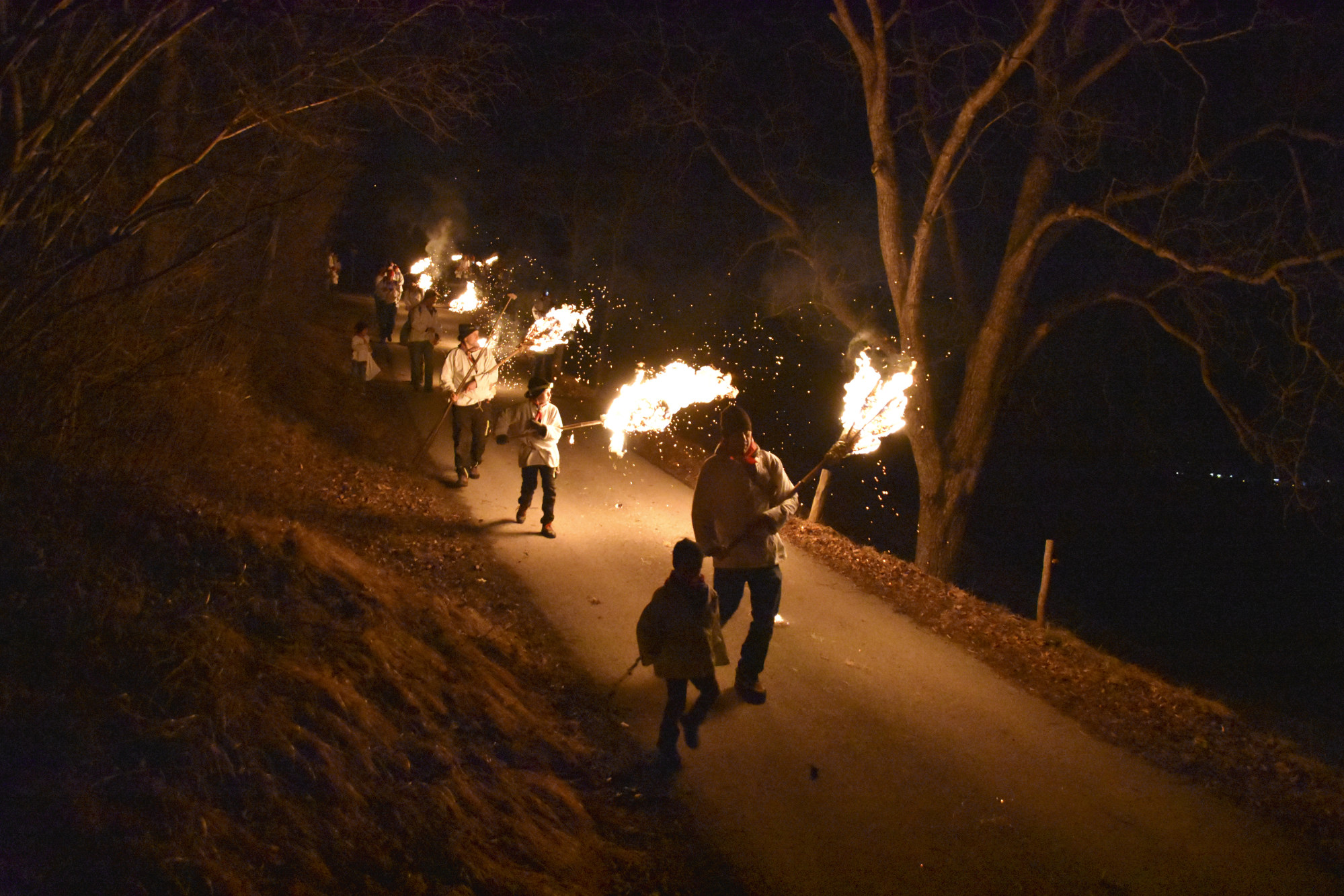
In the evening of the first Sunday in Lent every year (February 26 in 2023), the single males of the village, from young boys chaperoned by their fathers up to men in their twenties or even older, dress in the traditional costume of red and white, likely sewn by their grandmothers from bedsheets.
They proceed up the valley sides to one of five points overlooking the village, carrying discs of beechwood they have cut and carved during the preceding weeks.
They then build fires and use those to set the wooden discs alight, before attaching them to freshly cut hazel branches, which they use to fling the flaming discs up into the night sky and down towards the village.
Switzerland tailors boutique holidays for return of big-spending Chinese
The younger ones shout out the name of a beloved female family member while the men cry that of some actual or wished-for lover – all audible in the village below.
“Lara! This disc is for you!”
Some saw the cancellation coming. In the festival’s centuries-long history there have occasionally been other weather problems, but global heating is forcing Switzerland’s mountain communities to adapt in ever more varied ways.
In 2022, the launching sites were reduced from five to only two that were considered safely wet enough, and the local fire brigade was kept on standby at great cost late into the night to tackle any smouldering beyond that of the emotional kind.
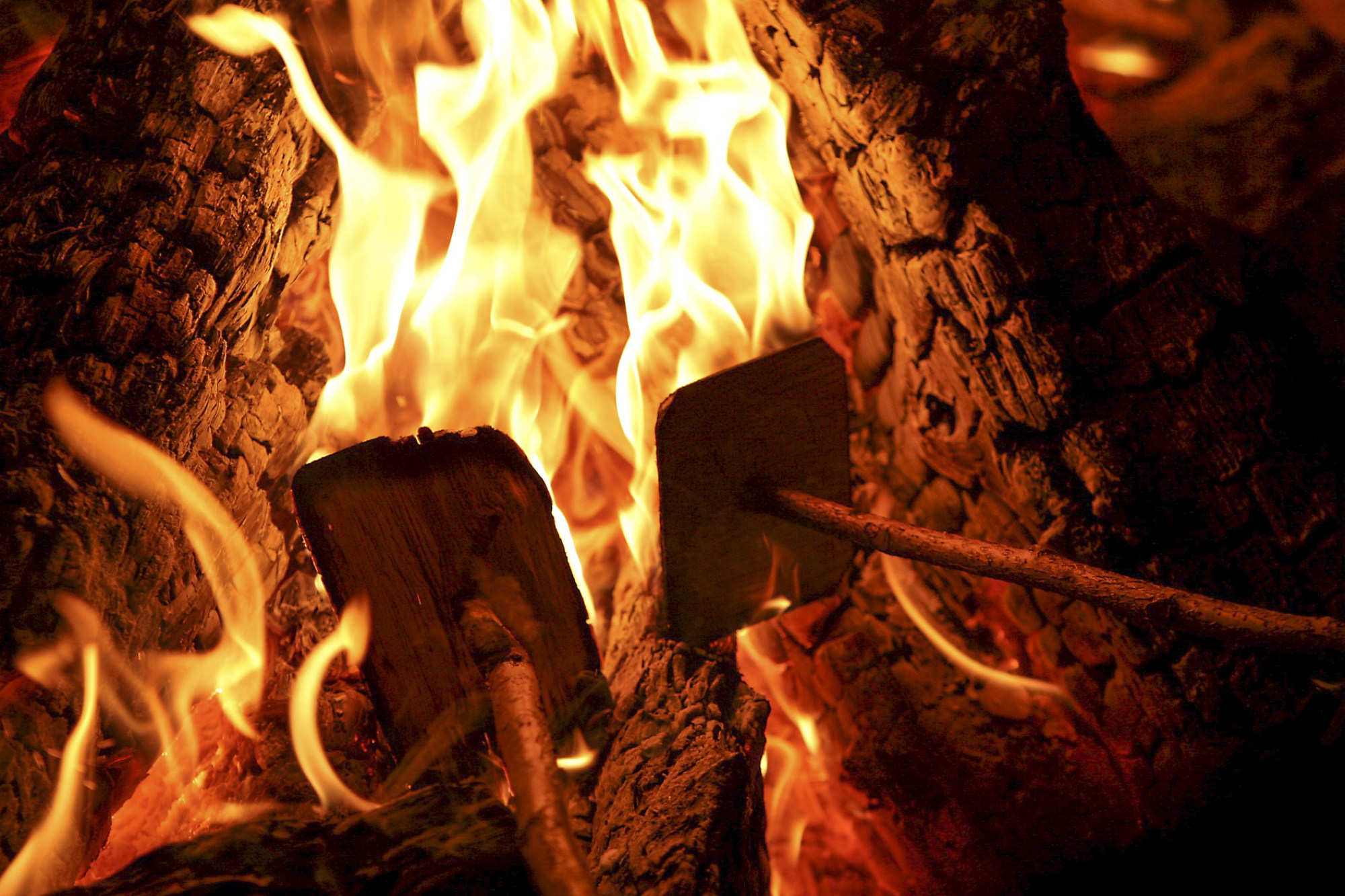
But, coming on top of recent cancellations because of Covid-19 pandemic precautions, the complete absence of the festival for another year is particularly painful.
“It is a nice, social occasion where the whole population meets in the evening. It is a pity that this was not possible,” Vogel says.
“My boys said it was sad because they had prepared and made the discs,” says teacher Marco Maffiew, who grew up taking part in the festival.
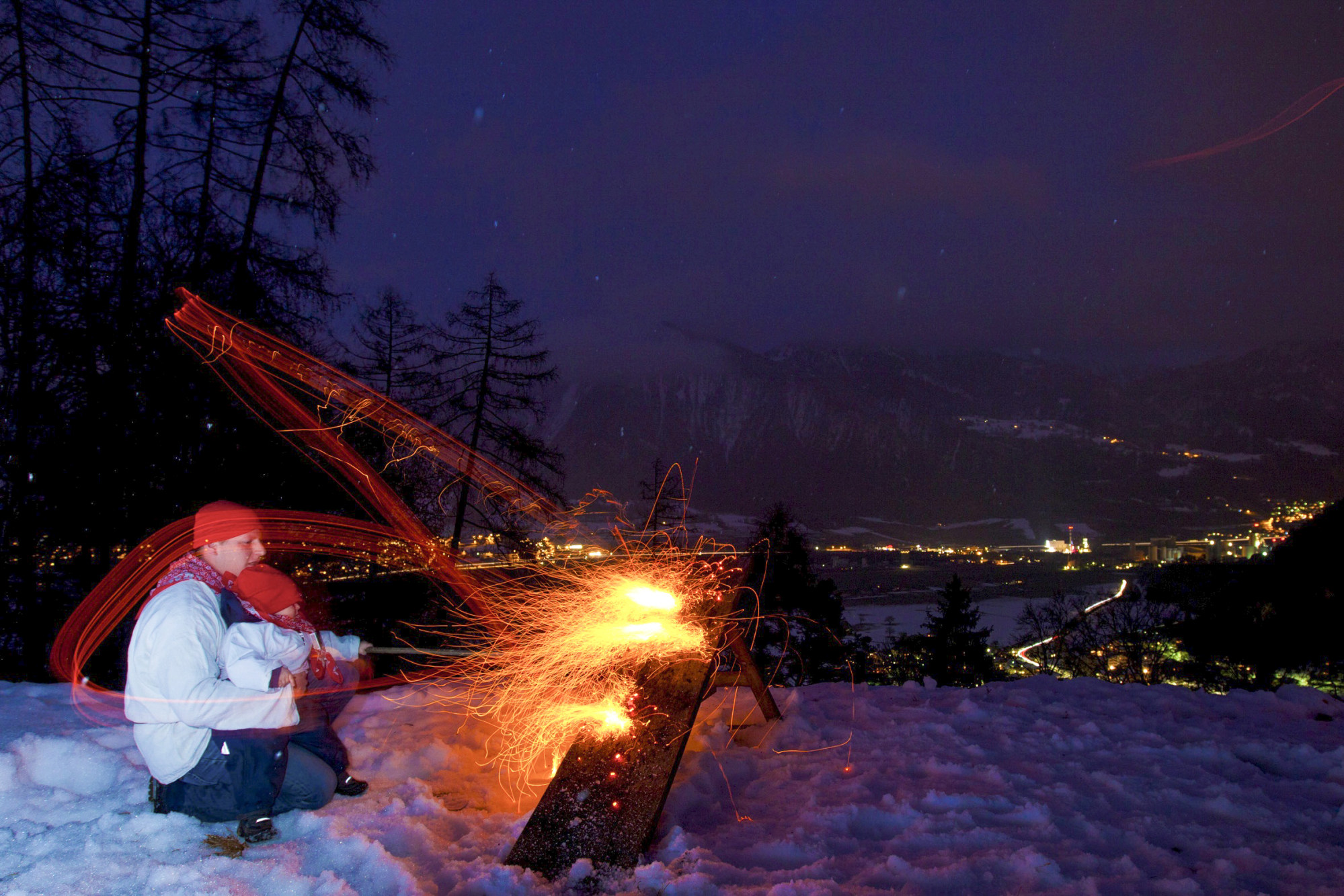
Those villagers who are married or female congregate in the village centre and sing a special song they learn at school about how the festival is coming, the boys are making their discs, and that every boy has a girl.
The role for women in all of this is for each to look her best and to do a great deal of baking. When the young boys come down from the mountainside, they visit the homes of all the girls in their class one after the other to be fed traditional cake and bread, which are sweet and oily and sometimes made with special spices.
At this point, any parent-chaperones present are banished, and stops at some houses may be brief to make it possible to return to spend more time in that of the girl whose name was shouted.
There are some people in Untervaz with only nine-and-a-half fingers
Naturally, there has been some debate about this division of labour, and whether the festival, partly a fertility rite thought to be pre-Christian in origin, ought to be modernised. But so far the villagers have stuck with tradition, weather permitting.
They are open-minded on same-sex relations, but no boys are shouting the names of other boys just yet.
Some girls stop taking part when they leave school, and some boys, who find they now have no girls to visit, take sausages and beer up the mountain and stay out all night.
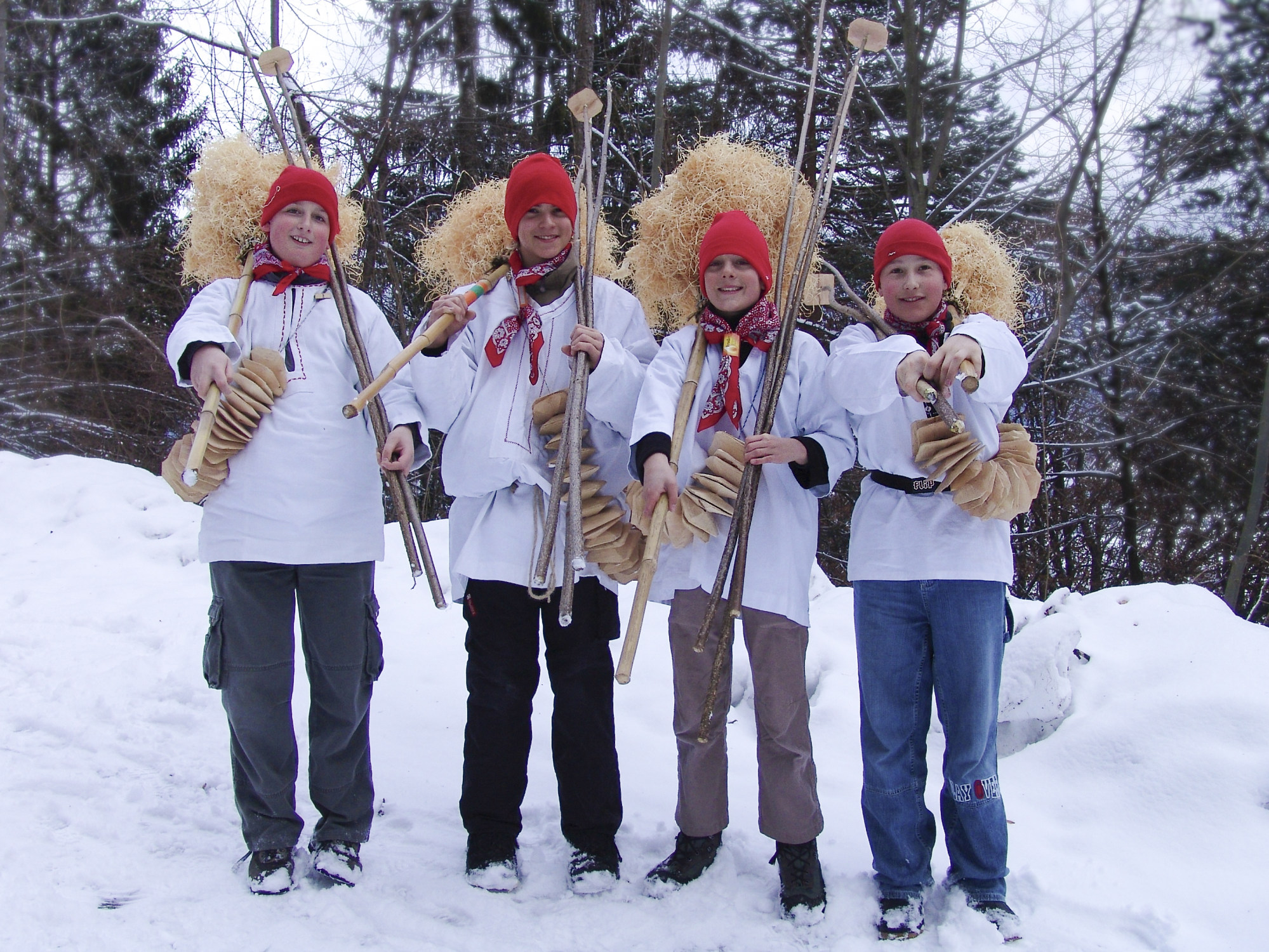
It’s not all fun. The beech wood is hard to cut and there are sometimes accidents.
“There are some people in Untervaz with only nine-and-a-half fingers,” Maffiew says, cheerfully.
As at many other curious winter-banishing festivals in Switzerland, the event is not marketed for tourism purposes. It represents a genuine coming together of the community for celebration and a few knowing looks.
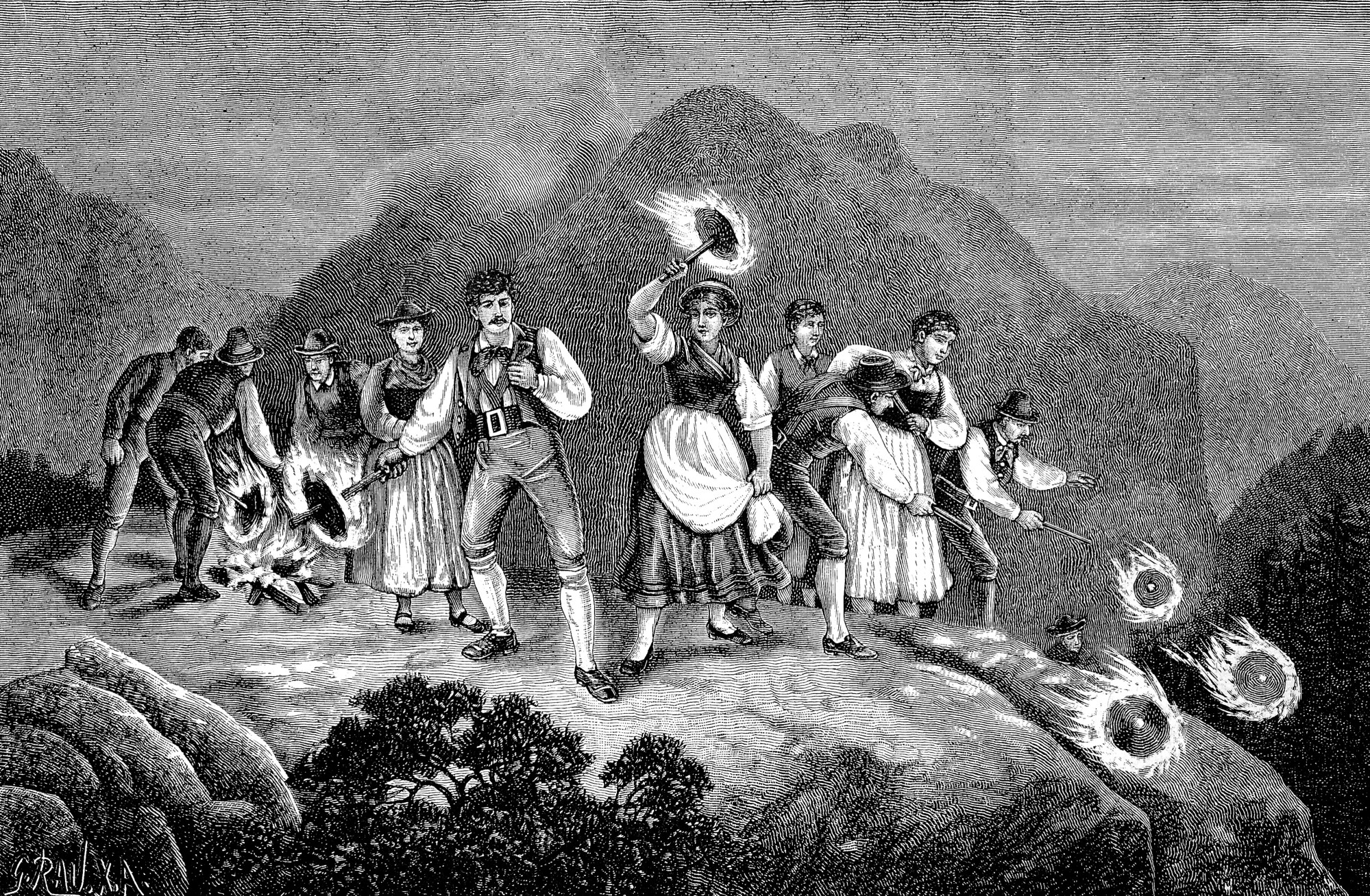
So there’s no major economic hit from the cancellation, although Vogel says the restaurants would have been well filled that evening.
Outsiders are welcome, but as changes to the planet increasingly alter landscapes and calendars in unexpected ways, a visit sooner rather than later might be wise.

